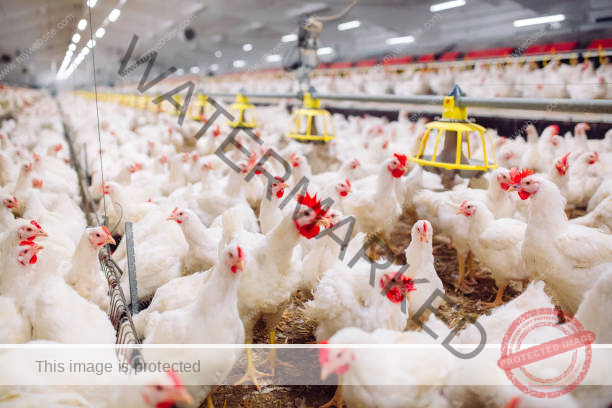Starting a farm is not just about planting crops or raising livestock; it’s also about running a successful business. Registering your farm as a business in Kenya is a crucial step towards legitimacy, access to financial support, and overall business growth. In this guide, we will take you through the step-by-step process of registering your farm in Kenya.
How To Register Your Farm As A Business In Kenya Step By Step Guide
Step 1: Business Idea and Name Registration
Before diving into the legal aspects, clearly define your farm business idea and choose a suitable name. Ensure that the name aligns with your agricultural activities and is unique to avoid conflicts with existing businesses. Register your business name with the Business Registration Service (BRS) at the Huduma Centre or online through the eCitizen portal.
Step 2: Obtain a KRA PIN
Every business entity in Kenya requires a Personal Identification Number (PIN) from the Kenya Revenue Authority (KRA). Visit the nearest KRA office or apply online through the iTax portal. This PIN will be essential for tax compliance and various transactions related to your farm business.
Step 3: Select the Appropriate Business Structure
Choose the most suitable business structure for your farm. Common options include sole proprietorship, partnership, or a limited liability company. Each structure has its own legal implications and tax obligations, so carefully consider your long-term goals before making a decision.
Step 4: Acquire the Necessary Licenses and Permits
Depending on your agricultural activities, you may need specific licenses and permits to operate legally. Contact relevant government agencies such as the Agriculture and Food Authority (AFA), the Kenya Plant Health Inspectorate Service (KEPHIS), or the county government agricultural offices to inquire about the required permits for your type of farming.
Step 5: Open a Business Bank Account
Separate your personal and business finances by opening a dedicated business bank account. Prepare the necessary documents, including your business registration certificate, PIN certificate, and identification documents, and visit your preferred bank to open the account.
Step 6: Register with the Social Security Fund
Enroll your farm and employees with the National Social Security Fund (NSSF) for social security benefits. This is a mandatory requirement for businesses with employees.
Read Also: A Guide on How to Become an Agriculture Development Officer
Step 7: Tax Registration with KRA
Register your farm business for taxation with the KRA. This involves obtaining a tax compliance certificate, which is crucial for participating in government tenders and accessing various business opportunities.
Step 8: Keep Accurate Records
Maintain detailed records of your farm’s financial transactions, including income, expenses, and taxes. This will not only facilitate compliance with regulatory requirements but also provide valuable insights into the financial health of your farm.
How do I register a farm in Kenya?
To register a farm in Kenya, start by defining your farm business idea and choosing a unique name. Register the business name with the Business Registration Service (BRS) at the Huduma Centre or online through the eCitizen portal. Obtain a KRA PIN from the Kenya Revenue Authority, select an appropriate business structure, acquire necessary licenses and permits, open a business bank account, register with the Social Security Fund, and complete tax registration with KRA.
How to start an agriculture business in Kenya?
Starting an agriculture business in Kenya involves several steps. Develop a clear business plan outlining your goals and strategies. Register your business with the relevant authorities, such as the Business Registration Service, acquire necessary licenses and permits from agencies like AFA and KEPHIS, open a dedicated business bank account, and ensure compliance with taxation and social security regulations. Establishing strong record-keeping practices is also crucial for the success of your agriculture business.
How do I register a small business in Kenya?
To register a small business in Kenya, follow these steps: choose a unique business name and register it with the Business Registration Service, obtain a KRA PIN from the Kenya Revenue Authority, select a suitable business structure, acquire necessary licenses and permits, open a business bank account, register with the Social Security Fund if you have employees, and complete tax registration with KRA.
How much does it cost to register a business in Kenya?
The cost of registering a business in Kenya varies depending on the type of business structure and the professional assistance you seek. Generally, registration fees can range from a few thousand Kenyan Shillings to tens of thousands. It’s advisable to check the latest fee schedule with the Business Registration Service and other relevant authorities.
Why is farmer registration important in Kenya?
Farmer registration in Kenya is crucial for several reasons. It helps the government plan and implement agricultural policies effectively. Registered farmers gain access to government support programs, extension services, and agricultural subsidies. It also facilitates traceability of agricultural products, ensuring food safety and quality control. Farmer registration fosters a more organized and sustainable agricultural sector, contributing to overall economic development in Kenya.
Read Also: A Beginner’s Guide to Becoming a Farmer with No Experience
Conclusion:
Registering your farm as a business in Kenya is a fundamental step towards establishing a solid foundation for growth and sustainability.
By following this step-by-step guide, you can navigate the legal and administrative processes seamlessly, ensuring that your farm operates within the bounds of the law and contributes positively to Kenya’s agricultural sector.





